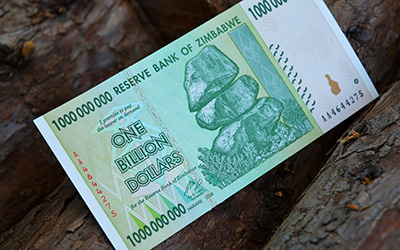Blog
Strategic philanthropy
A guide for billionaires seeking impact
Where should billionaires spend their money if they want to make a positive difference? I spoke to the experts in our network and took a look at recent UN flagship reports to gain insights into this critical question.
In 2021, Elon Musk made a claim on social media that he would sell Tesla shares to help solve world hunger, if the World Food Programme (WFP) would present a plan for how the money would be spent. David Beasley, the Director of the WFP, made good on the plan, but Musk never delivered the money.
The need for significant contributions remains critical today if we want to see even some of the Sustainable Development Goals (SDGs)—such as ending hunger, poverty, or environmental degradation—achieved by 2030. Here, I share expert insights on the most effective avenues for billionaire philanthropy.
How much is needed?
Andy Sumner, UNU-WIDER Non-Resident Senior Research Fellow, points to his new estimates: ending extreme monetary poverty would cost about USD 70 billion a year and ending absolute monetary poverty USD 325 billion.
 The latter amount is more than the current levels of all official development assistance (ODA), which is about USD 190 billion per year. To raise the necessary funds, Sumner and co-author Arief Anshory Yusuf call for a universal development commitment and for OECD countries to meet their existing commitment to allocate 0.7% of gross national income (GNI) for development assistance. The latter alone would raise over USD 400 billion per year. According to a 2023 analysis by UN Trade and Development (UNCTAD), the estimated cost of achieving all SDGs by 2030 is between USD 5.4–6.4 trillion per year.
The latter amount is more than the current levels of all official development assistance (ODA), which is about USD 190 billion per year. To raise the necessary funds, Sumner and co-author Arief Anshory Yusuf call for a universal development commitment and for OECD countries to meet their existing commitment to allocate 0.7% of gross national income (GNI) for development assistance. The latter alone would raise over USD 400 billion per year. According to a 2023 analysis by UN Trade and Development (UNCTAD), the estimated cost of achieving all SDGs by 2030 is between USD 5.4–6.4 trillion per year.
Naturally, it is difficult to separate different dimensions of poverty and SDGs, Sumner reminds. Take, for example, the problem of child malnutrition. To end child stunting requires programmes and policies to address not only poor infant nutrition but also maternal nutrition during pregnancy, access to health care, better sanitation infrastructure and clean water, improved hygiene education, and other forms of nutrition support (e.g. school feeding programmes, social transfers, and market interventions to prevent food price surges).
Invest in children
Further highlighting the disproportionate effects of undernutrition on children in low- and middle-income countries, several of our experts emphasize the economic and moral imperative to invest in early childhood development.
‘While we have seen tremendous improvements in child undernutrition rates over the last decades, in 2022, nearly 150 million pre-school children were still chronically undernourished’, explains UNU-WIDER Research Fellow Kalle Hirvonen. ‘We need urgent investments to solve this problem’.
‘The first 1,000 days of a child’s life are a critical period, characterized by extremely rapid physical and cognitive development’, Hirvonen reminds. ‘Chronic undernutrition during this period is linked to several adverse later-life economic outcomes, such as reduced schooling, poorer cognitive skills, lower earnings, and a higher risk of poverty.’
Apart from moral arguments, there are strong economic arguments.
Even apart from moral arguments, there are strong economic arguments to invest in this, Hirvonen says. 'John Hoddinott and colleagues estimate that every euro invested in reducing chronic undernutrition will generate on average 18 euros in economic returns. You would be hard-pressed to find a similar rate of return elsewhere’, he concludes.
Childhood education is another critical area. UNU-WIDER Director Kunal Sen argues for the need to improve remedial learning in low-income countries.
‘The legacy left by the loss in schooling years during the COVID-19 pandemic will accentuate inequality, limit social mobility, and constrain economic growth in the future. Governments in the Global South do not have the funds, nor the technical capacity, to provide the type of remedial learning needed. Billionaires can help mobilize resources, technology, and the best pedagogical practices to provide the type of learning needed, so that especially the least developed countries can close the gap.’
Other high-return areas for charitable investment
 But billionaires are not limited to the abovementioned options.
But billionaires are not limited to the abovementioned options.
According to the Financing for Sustainable Development Report 2023, a study by Fay et al. finds that each dollar invested in high-quality, resilient infrastructure is expected to deliver a four-dollar benefit. Another high return area is data improvement and advancement. An analysis by the UN and World Bank estimates that for every dollar invested in improved data returns USD 32. This explains why the Data with Purpose campaign, coordinated by the UN and the World Bank, calls on bilateral and philanthropic donors to allocate a minimum of 0.8% of their annual charitable investment to data ecosystems.
Supporting better data delivery is also a step towards good governance. The major issue behind the absence of quality infrastructure and basic services in many countries is corruption and lack of transparency. In addition to data capacities, investments in improved tax systems, active civil society, free and fair elections, and media freedom are factors speeding up the delivery of good governance.
Another concrete area concerns trade justice. Lower income countries would need significantly less money to develop their economies if freed from the obligation to pay patent royalties to adopt technology, buy medicine, or import agricultural inputs.
In June 2022, the Twelfth World Trade Organization Ministerial Conference reached an agreement to provide a framework to improve access to COVID-19 vaccines, as well as to enhance technology transfer and manufacturing capacities. This is a step in the right direction, and one that some rich entrepreneurs, such as Elon Musk, have actively encouraged to advance the technological frontier.
Pay your taxes!
Finally, there is one area of clear expert consensus in this conversation. ‘The first layer is about fair taxation, more equal distribution of wealth, and who gets to decide how money is spent’, says Kalle Hirvonen. ‘Addressing these questions would ensure that spending decisions take place under democratic processes.’
Far too many of the ultra-wealthy manage to avoid taxes.
UNU-WIDER Senior Research Fellow Rachel Gisselquist echoes the sentiment. ‘No government is perfect, but I trust democratic institutions and representative governments more than individuals – whether they are billionaires, or kings, or dictators—in identifying what is in the public interest.’ She points out that far too many of the ultra-wealthy manage to avoid taxes: ‘An analysis by ProPublica showed that the 25 richest people in the US have a true tax rate of only 3.4%—compared with 14% in federal taxes for the median American household. Billionaires should first pay their fair share of taxes.’
Andy Sumner has the same message for billionaires:
‘My main response is: pay your taxes!’
The views expressed in this piece are those of the author(s), and do not necessarily reflect the views of the Institute or the United Nations University, nor the programme/project donors.
 Join the network
Join the network







